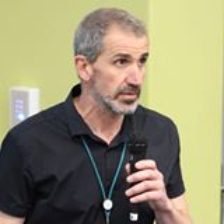
Love gives us the power to perceive truths and understand our lives more deeply. Mystics and wise gurus throughout the ages have practiced knowing through love. Rumi wrote the following tribute to love:
“I have forgotten all my learnings,
but from knowing you I have become a scholar.”
The fourteenth century English author of The Cloud of Unknowing, taught that “when the mind is empty and devoid of essences, there arises a movement of love.”
Thomas Aquinas, in his Summa Theologica, links on to this mystical understanding of love to develop his two kinds of knowledge.
There is knowledge that comes from scientific enquiry, or the active use of the brain’s reasoning capacities. And then there is another kind of knowledge gained through connecting to the object of enquiry. This is the domain of boundless love.
How love works
Love enables deeper knowledge because it puts people in connection with ‘the other’. It connects our minds to the very heart of things whether it is:
- another person
- an inanimate object
- an opinion
- a problem
Uniting the human mind more closely to its object of enquiry gives insight into that object, whatever it may be. Through co-naturality, as Aquinas called it, the mind knows by experience. We go beyond the rational examination of another separate physical entity and experience a shared dimension of existence; a commonality and unity that is an altogether different, more powerful and more mysterious means of gaining knowledge.
Einstein knew it
Who better to take advice from than Albert Einstein? According to Einstein, without a penetration of the object, the world of ideas and that which is experienced cannot be logically connected. The two are brought together by an “extra-logical, intuitive” procedure.
Einstein’s genius lay in his ability to intuitively penetrate or connect with reality such that he could describe it in terms of the world of ideas in his mind. These were the mathematical formulas and scientific rules he had studied.
Einstein possessed spiritual intelligence that enabled him to experience and prove the truth or falsity of his rational formulations. It was his spiritual intelligence that enabled him to look at the cosmos and experience that it could be described by the ideas he had formulated rationally.
Amazingly his school-teacher apparently said he was “mentally slow, unsociable and adrift forever in his foolish dreams”. One hundred years ago we might have been excused for regarding Einstein as mentally slow had we known that he apparently did not speak until he was four years old, and didn’t read until he was seven. Today we know what a huge error that would have been – history has proven that.
Changes in education
Recent development in our understanding of intelligence allows for things like meditation and creativity outside of the IQ box.
Einstein was in awe of the cosmos. He revered the universe. He had a kind of humble love for the mystery of existence. The famous genius believed that wonderment in the face of “the mystery of the sublime” properly motivates science, religion, art and ethics. To this, I would add any work or labour. Einstein wrote:
“. . . in this materialistic age of ours
the serious workers are the only profoundly religious people.”
This is because they are united to their work through love, through a certain reverence for the world and their place in it. They live in the present moment and become absorbed in it. For them, time flies by faster than it does for their colleagues in the adjacent cubicles who are facing the energy-sapping, second-by-second drudgery of another day of waiting to clock out.
Connected, concentrated focus reveals value and insight into whatever it is that we are doing. This is perhaps so because the energy received by the mind through its connection to reality, manifests itself as enthusiasm and commitment in all aspects of life.
Regarding the reward of knowledge or insight gained through connecting to reality, the same Albert Einstein wrote:
“By way of the understanding he achieves a far-reaching emancipation
from the shackles of personal hopes and desires . . .”
This “emancipation from the shackles of personal hopes and desires” is transcendence of false self. It is an experience of letting go of isolated self and finding connectedness, through true self. It’s an experience of the energising ground of reality, love, connecting all, and expelling the delusion of separateness.
Meditation is the way
Monastic theologians of the Middle Ages knew something we have tended to neglect and even completely dismiss ever since our European-dominated scientific culture became so impressed with rational and logical methods of knowing. They new how to investigate and learn without the modern scientific method. They relied on meditation and contemplation to co-exist with the objects of inquiry. All modern science sprung originally from this base.
Until recently, western consciousness has largely neglected contemplation – the role of love in knowing. Recently though, a reawakening has begun. We seem to be seeing the limitations of activity of mind and more of us are seeking passivity.
The demi-gods of rationalism and positivism are being found out. We are looking to mind and soul again to help us solve the persisting problems of our species. We are sensing the danger of doing science, business, or anything without spiritual intelligence. Modern people are sensing that we will not solve our problems by logical and rational endeavours alone, no matter how brilliant they are.
Regular readers of my blog articles will know that meditation is the practice that centres us on our true selves and exposes the love that is veiled there. It is this love that opens up perception. So, meditation is the key to knowing through love. And it’s the key to truly enlightening education.

Leave a Reply